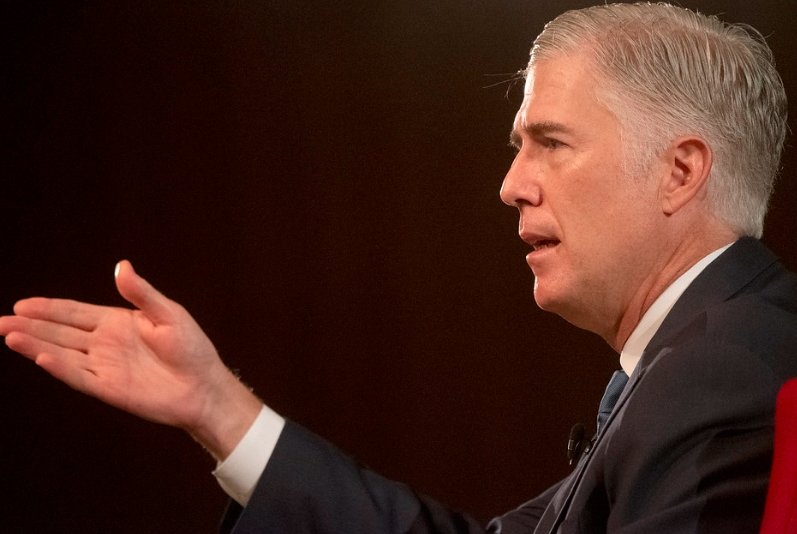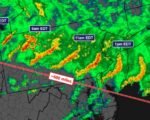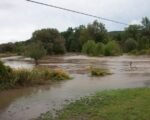The Colorado Supreme Court justices who ruled to disqualify former President Donald Trump from the state’s 2024 presidential primary ballot are facing a surge of threats and harassment from his supporters, according to local and federal law enforcement officials.
Court ruling sparks backlash
The court issued a 4-3 decision on Tuesday, citing the 14th Amendment of the U.S. Constitution, which prohibits anyone who has engaged in insurrection or rebellion against the United States from holding any office. The court found that Trump’s actions and statements before, during, and after the January 6, 2021, attack on the U.S. Capitol amounted to an attempt to overthrow the government and subvert the democratic process.
The ruling effectively removed Trump from the Colorado Republican primary ballot, which is scheduled for March 5, 2023. Colorado is one of the few states that allows voters to directly choose their presidential candidates in a primary, rather than through a caucus or a convention.
The court’s decision sparked a backlash from Trump and his allies, who denounced it as a “political hit job” and “election interference”. Trump, who has repeatedly and falsely claimed that the 2020 election was rigged and stolen from him, accused the Colorado justices of being “corrupt” and “biased” and vowed to appeal the ruling to the U.S. Supreme Court.
Threats and incidents reported
Following the court’s ruling, the Colorado justices who voted in favor of disqualifying Trump have been targeted by threats and harassment on social media and other platforms, according to a report by Advance Democracy, a nonpartisan nonprofit organization that monitors online extremism and misinformation.

The report found that some of the threats included calls for violence, such as shooting, hanging, bombing, or beheading the justices, as well as inciting a civil war against Democrats. Some of the threats also contained antisemitic and racist language, blaming Jews and people of color for the court’s decision.
Some of the threats were posted in response to Trump’s messages on his own social media platform, Truth Social, where he has continued to spread lies and conspiracy theories about the 2020 election and the January 6 attack. Some of the users also shared the justices’ contact information and office building addresses, according to the report.
The Denver Police Department said in a statement that it is “currently investigating incidents directed at Colorado Supreme Court justices and will continue working with our local, state and federal law enforcement partners to thoroughly investigate any reports of threats or harassment”.
The FBI also confirmed that it is aware of the situation and working with local law enforcement. “We will vigorously pursue investigations of any threat or use of violence committed by someone who uses extremist views to justify their actions regardless of motivation,” Vikki Migoya, a spokesperson for the FBI’s Denver field office, said in a statement.
The Colorado State Patrol, which is responsible for protecting state officials while they are in state buildings, said in a statement that it “will assist with those investigations as necessary”, but declined to comment on any additional security measures prompted by the threats.
The Colorado Judicial Department declined to comment on court security matters, but said that the justices have been advised to be on high alert and report any threatening behavior.
Legal and political implications
The Colorado Supreme Court’s ruling has raised legal and political questions about the application and interpretation of the 14th Amendment, which was enacted after the Civil War to prevent former Confederate officials from holding office.
The amendment states that “no person shall … hold any office … under the United States, or under any state, who, having previously taken an oath … to support the Constitution of the United States, shall have engaged in insurrection or rebellion against the same, or given aid or comfort to the enemies thereof”.
The court’s majority opinion, written by Justice Monica Márquez, argued that Trump’s conduct met the criteria for disqualification under the amendment, based on the evidence presented by the plaintiffs, who were four Colorado voters represented by a group called the Committee to Disqualify Trump.
The evidence included Trump’s tweets, speeches, phone calls, and lawsuits that sought to overturn the 2020 election results in several states, as well as his role in inciting and encouraging the mob that stormed the Capitol on January 6, 2021, in an attempt to stop the certification of Joe Biden’s victory.
The court also rejected the arguments made by the defendants, who were the Colorado secretary of state and the Colorado Republican Party, that the 14th Amendment only applies to people who have been convicted of a crime or removed from office by impeachment, and that the court lacked the authority and jurisdiction to disqualify a presidential candidate.
The court’s minority opinion, written by Justice Carlos Samour Jr., dissented from the majority’s reasoning and conclusion, saying that the 14th Amendment does not apply to Trump because he has not been convicted of any crime or impeached and removed from office, and that the court should not interfere with the voters’ right to choose their preferred candidate.
The ruling has drawn mixed reactions from legal experts, politicians, and the public, with some praising it as a bold and courageous move to uphold the rule of law and the Constitution, and others criticizing it as a partisan and unprecedented overreach that violates the separation of powers and the democratic process.
The ruling is expected to face legal challenges and appeals, as Trump’s lawyers have indicated that they will seek to overturn it at the U.S. Supreme Court. The ruling could also have implications for other states that may consider similar actions to bar Trump from the ballot, as well as for the 2024 presidential election, which is likely to be highly contested and polarized.














